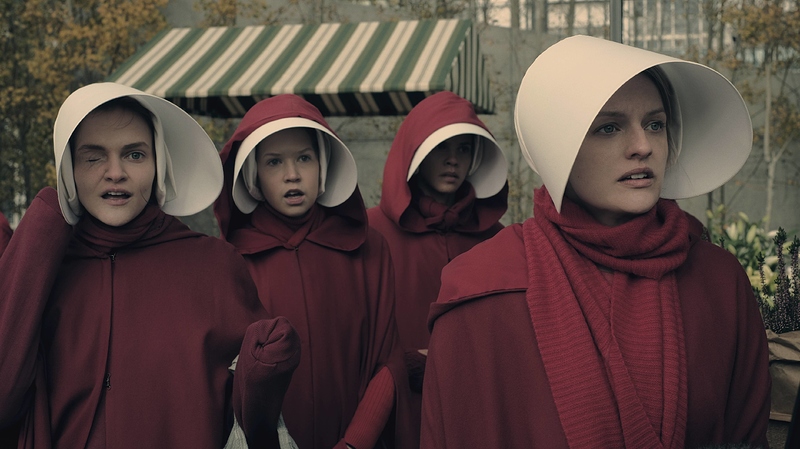At Lit Hub, Brady Gerber writes about how the renewed popularity of dystopian stories, as exemplified by the success of The Handmaid’s Tale TV show, has deprived the genre of its bite. As Gerber writes,“Dystopia has moved from an explicitly political critique to a sensationalized and commercialized form of entertainment.” Read an excerpt from the piece below, or the full text here.
Once an ambitious medium of social and political criticism, dystopia has been reduced to a buzzword that can be slapped onto anything to sound engaged. The word has not yet become totally meaningless—it still evokes a certain dread, and great dystopian art is still being made. But there’s too much of it. We already know there are endless reasons to be afraid, that no one acting alone can change the future. We are overloading on dystopia.
Many people of my generation first formed an understanding of dystopia from reading 1984 and Aldous Huxley’s Brave New World in school. We grew up on Big Brother, and now we retreat to these scary fictional worlds when anything in real life begins to vaguely resemble them. When these stories, many of which contain anti-capitalist or anti-consumerist critiques, become newly popular, they are inevitably adapted into shows, films, or Apple commercials. Just as we’re going to get a new Star Wars film every year until the end of time, we’re being told the same dystopian tales we learned as freshmen in high school over and over, many of which were written long ago and, as Angelica Jade Bastién points out, are starkly white. We’re stuck seeing the world as 15-year-olds.
“Dystopia used to be a fiction of resistance,” author and historian Jill Lepore wrote for the New Yorker in June, “[now] it’s become a fiction of submission, the fiction of an untrusting, lonely, and sullen 21st century, the fiction of fake news and infowars, the fiction of helplessness and hopelessness.”
Image from The Handmaid’s Tale via Frontpage Mag.
